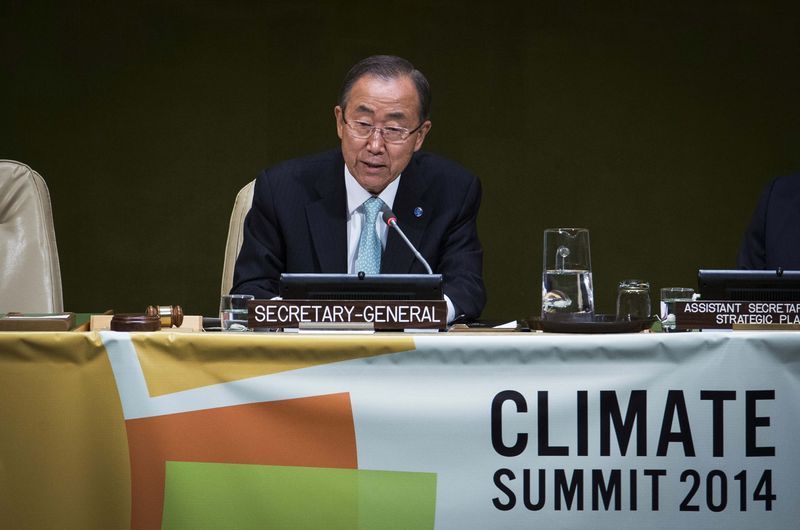UN summit sets new climate finance and deforestation targets
Ban Ki-moon, the UN Secretary-General, hosted the New York summit that has seen targets set to halt losses of tropical forests by 2030, address food security and boost the uptake of electric vehicles

Governments and multinational companies agreed to halt deforestation, expand the use of renewable energy and raise billions of dollars in aid to improve resilience to climate change in developing countries at the UN Climate Summit on Tuesday.
Ban Ki-moon, the UN Secretary-General, hosted the New York summit that has seen targets set to halt losses of tropical forests by 2030, address food security and boost the uptake of electric vehicles in cities to 30 per cent of new vehicle sales by 2030.
The non-binding agreements were set by various coalitions of governments, multinational companies, cities, investors and environmental organisations.
The targets are designed to support the UNFCCC COP21 summit in Paris in late 2015 when a binding deal is expected to be finalised a deal to slow rising greenhouse gas (GHG) emissions.
The summit was held at the UN headquarters and governments and investors said they would raise in excess of US$200 billion in climate financing by the end of 2015, including US$30 billion in green bonds by commercial banks and US$100 billion from a group of development banks.
Ban said: “This will serve as a catalyst in finalising a universal and meaningful agreement at Paris on climate change in 2015.”
The summit also saw an alliance of several countries including the United States and a coalition of multinational companies set a target of halving losses of forests by 2020 and stopping losses altogether by 2030.
The plan could cut CO2 emissions by 4.5 billion and 8.8 billion tonnes of carbon annually.
Companies including Kellogg’s, Marks & Spencer, Barclays, Walmart, Unilever, Wilmar International, General Mills, Asia Pulp and Paper and Nestle up for the plan along with WWF and the International Union for Conservation of Nature (IUCN).
The declaration’s supporters say ending the loss of the world’s natural forests will be crucial in limiting global temperature rises to 2°C, beyond which the worst impacts of climate change are expected to be felt.
Research has suggested that land use change such as deforestation accounts for around 8 per cent of the world’s carbon emissions.
The declaration says: “Forests represent one of the largest, most cost-effective climate solutions available today. Action to conserve, sustainably manage and restore forests can contribute to economic growth, poverty alleviation, rule of law, food security, climate resilience and biodiversity conservation.”



